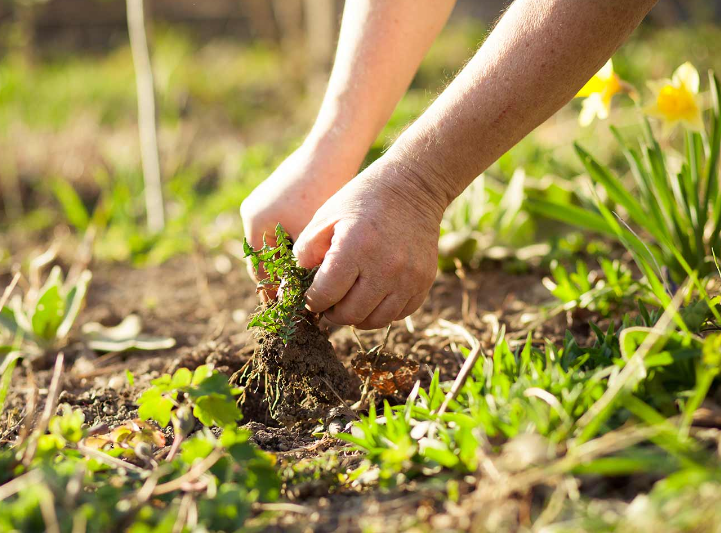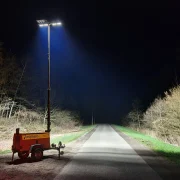Weeds compete with your plants for space, nutrients, and sunlight, but with the right strategies, you can keep these unwelcome guests at bay. Here’s how to reclaim your garden from weeds:
- Know Your Enemy
Understanding the types of weeds you’re dealing with is crucial. Annual weeds like crabgrass die off each year but spread seeds for the next season, while perennials, such as dandelions, can live for several years and often regenerate from their root systems even after being pulled out. Identifying them helps you choose the best control method.
- Preventative Measures
The first line of defense against weeds is prevention:
- Mulch: Apply a thick layer of organic mulch, such as wood chips or straw, which can inhibit weed growth by blocking sunlight.
- Landscape Fabric: For a more robust solution, landscape fabric laid under mulch can help prevent weeds from taking root.
- Pre-emergent Herbicides: These can be applied early in the season to prevent weed seeds from germinating.
- Regular Maintenance
Stay vigilant and regularly inspect your garden for new weed growth. Hand-pulling weeds can be effective, especially after a rain when the soil is moist, and roots come out more easily. Ensure you remove the entire root system to prevent regrowth.
- Cultivation with Care
Hoeing or cultivating the soil can help remove weeds, but do so with care. Disturbing the soil can sometimes bring dormant weed seeds to the surface and give them the conditions they need to sprout. Cultivate only the top layer of the soil to avoid this issue.
- Dense Planting
Planting garden plants closely together can shade the soil, reducing the chances of weeds getting the sunlight they need to grow. Using ground covers or planting in blocks rather than rows can also minimize the space available for weeds to establish.
- Natural and Chemical Herbicides
When necessary, herbicides can provide control:
- Natural Herbicides: Vinegar, boiling water, or salt are natural methods that can kill weeds, but they can also harm your plants if not applied carefully.
- Selective Herbicides: These target specific weed species while leaving other plants unharmed.
- Non-selective Herbicides: These kill almost any plant they touch and should be used as a last resort and applied with precision.
- Encourage Healthy Soil
Healthy, fertile soil supports the growth of your plants but can make it harder for weeds to compete. Regularly adding organic matter, keeping the soil pH balanced, and ensuring adequate fertilization for your plants will give them the upper hand against weeds.
- Watering Techniques
Water your plants directly at the root and avoid overhead watering which can also help weeds sprout and flourish. Drip irrigation systems or soaker hoses are ideal for this purpose.
By employing a combination of these strategies, you can significantly reduce the presence of weeds in your garden. Remember that persistence is key—regular attention and prompt action when weeds are spotted will help keep your garden healthy and flourishing.
This post was written by a professional arborist at www.arborwisetreeservices.com. Robert Miller is the owner of Arbor Wise Professional Tree Care, a locally owned and operated tree service company that offers superb lawn care by the most experienced Arborists. Arborwise Tree Services is a tree removal company that offers stump removal, tree pruning, stump grinding, fertilization, and tree restoration. We have an extraordinary lawn care industry notoriety covering the Pinellas county area.









Comments